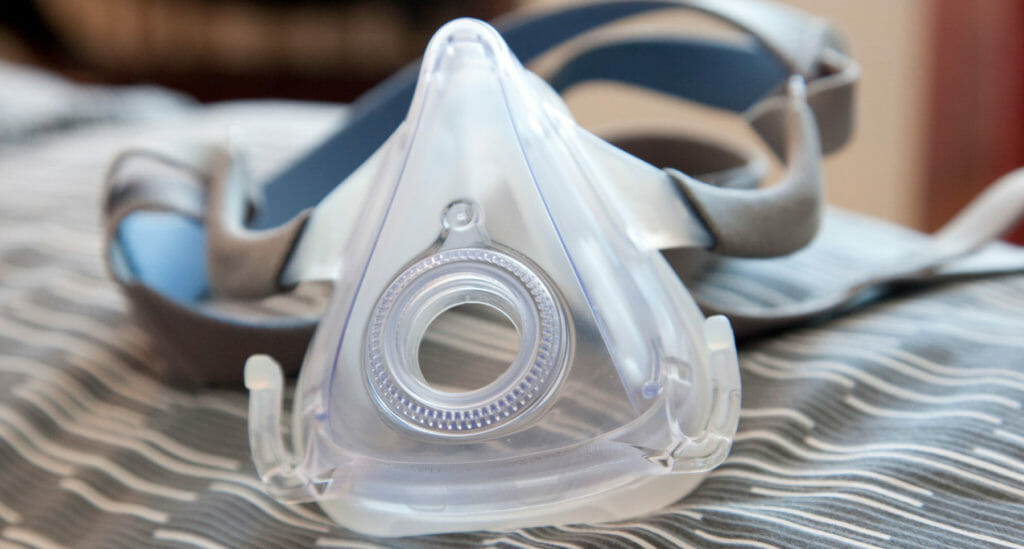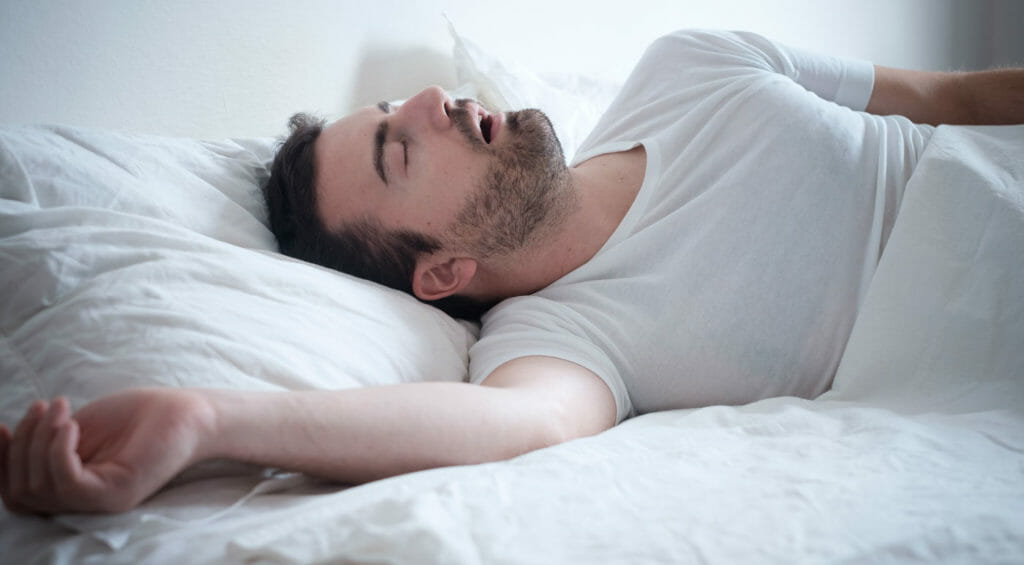
Suffering from disrupted sleep? Do you snore loudly? Has your partner told you that you choke and gasp for air during the night? Do you feel like no matter how much you sleep, you still wake up tired? Are you becoming more forgetful than you used to be?
If you answered yes to most or all of these questions, you could be suffering from sleep apnea.
What Is Sleep Apnea?
According to the American Sleep Apnea Association, sleep apnea is an involuntary stop in breathing during sleep. The sleeper may stop breathing eight to 100 times in the night, for a minute or longer each time.
These breath stoppages don’t always wake up the sleeper, so they may be completely unaware of the issue. Instead, they wake up with headaches and experience daytime sleepiness, increasing their risk of drowsy driving.
Types of Sleep Apnea:
Obstructive Sleep Apnea Syndrome
Obstructive sleep apnea syndrome (OSAS) is a complete or partial airway obstruction. OSAS is the most common and dangerous form of sleep apnea. It cuts off the flow of oxygen to your body, disrupts your sleep, and makes you wake up feeling tired. Because of these effects, OSAS increases the risk of feeling drowsy while you’re driving.
Central Sleep Apnea
Central sleep apnea happens when the brain fails to send proper signals to the muscles that control your breathing rhythm. A 2013 study found that central sleep apnea is more common in people with congestive heart failure and who use opioids, as well as those who live at altitudea above 2,000m.
Complex Sleep Apnea Syndrome
Complex sleep apnea syndrome happens when a person has both obstructive sleep apnea and central sleep apnea. This combination requires urgent treatment.
What Causes Sleep Apnea?
Genetics
Some studies have explored the role of genetic predisposition in determining people’s sleep apnea risk and outcomes. Even though we need more research in this area, understanding your family history can help with early diagnosis and treatment.
Excess Weight
Excess body weight and a sedentary lifestyle result in the slow circulation of blood. Researchers estimate that nearly 25% of adults have sleep apnea, and around 45% of sleep apnea sufferers are obese. Fat deposition in the upper airway results in a narrower lumen, obstructing breathing.
Smoking
Studies have not proven a causal relationship between sleep apnea and smoking. However, smoking can worsen your risk of sleep apnea as well as the outcomes. Smoking can obstruct the upper airway through related fluid retention and upper airway inflammation.
Risks Associated with Sleep Apnea

Cardiovascular Disease
A recent study found that OSAS increases the risk of developing hypertension, coronary artery disease, cardiac arrhythmias, heart failure, and premature death. Research published in the New England Journal of Medicine found that sleep apnea is a major risk factor for stroke.
Impaired Cognition and Motor Vehicle Accidents
According to a systematic review in the Journal of Clinical Sleep Medicine, sleep apnea significantly increases the risk of road accidents. Several studies have shown that sleep apnea is associated with cognitive dysfunction, which is characterized by the impairment of episodic memory, working memory, and attention. Sleep apnea cuts off oxygen, which significantly affects your brain, leading to poor focus, concentration, coordination, and judgment.
Metabolic Syndrome
Metabolic syndrome manifests as high blood pressure, high cholesterol levels, high blood sugar, and excessive weight. Studies suggest that sleep apnea may be a manifestation of metabolic syndrome.
How Sleep Apnea Is Diagnosed
According to the European Sleep Research Society, “one night of a sleep study is the standard for diagnosis and exclusion sleep apnea.” A recent study found that there is potential for false negatives. It’s helpful to initiate treatment in the presence of sleep apnea symptoms such as daytime sleepiness, not feeling well-rested after seven or eight hours of sleep, and unexplained forgetfulness.
If you have these symptoms, a sleep study is an ideal way of finding out whether you’re suffering from sleep apnea.
Treatment for Sleep Apnea:
While the right mattress and sleeping position can be helpful, those who suffer from sleep apnea often need more. Here are some things that can help.
Stop Drinking Alcohol
According to studies, alcohol consumption increases the frequency and duration of obstructive sleep apnea episodes. In addition, alcohol negatively affects your REM sleep, even in people with a low risk of sleep apnea. When people stop drinking alcohol, they often see a marked decrease in sleep apnea.
Quit Smoking
According to this 2019 study, long-term smoking cessation leads to improved sleep quality and a lower risk of sleep-disordered breathing.
Lose Weight
According to this 2019 study, obesity can result in a narrowing of the airway lumen, which increases the likelihood of obstruction. Weight loss often helps to improve your blood pressure, your joints, and your overall health, which helps mitigate all the risk factors associated with sleep apnea.
Weight loss is a process. Start with a regular exercise routine, like going for a short morning walk or parking a few extra blocks away from your office. Talk to your doctor about other options.
Sleep on Your Side
Sleeping on your side prevents your tongue and throat tissues from collapsing and partially blocking your airway. This position further ensures that your mouth is wide open for effective breathing throughout the night.

As you get into bed, lie on your side right away to help increase your muscle memory for the rest of the night. If you find this position uncomfortable, it might be worth investing in a mattress specifically designed for side sleepers.
Continuous Positive Air Pressure (CPAP)
CPAP is the most leading and effective therapy for sleep apnea. It involves wearing a face or nasal mask connected to a pump, which generates positive airflow to keep the airways open while you sleep. Using a CPAP can be easy, especially with the right CPAP machine and expert guidance.
Often, new CPAP users find it hard to adjust emotionally. Many people who sleep with their partners worry that they will look ugly with the CPAP mask on. However, those who love you will be happy that you are taking good care of your health!
Surgery
There is limited evidence about surgery for sleep apnea. However, a recent study insists surgery is still a great option if other treatments have failed. It is an invasive procedure, often aiming at anatomic corrections of the sleep obstruction. One of the most common complications associated with surgery is postoperative bleeding.
Mandibular Repositioning Devices?
Mandibular reposition devices aim to increase breathing space in the mouth and throat. Many studies have compared these types of devices to lifestyle changes and other conventional treatments such as CPAP. This study found no significant improvement in sleep apnea outcomes from mandibular repositioning devices, but talk to your doctor about whether one might work for you.